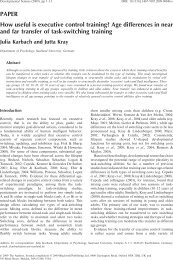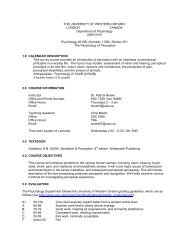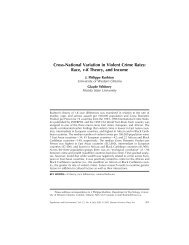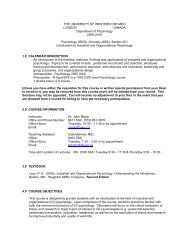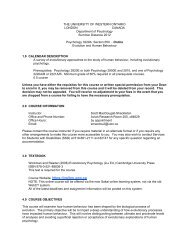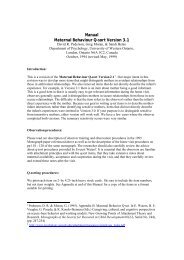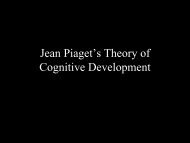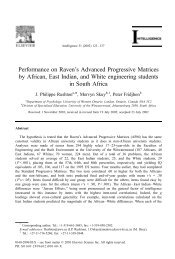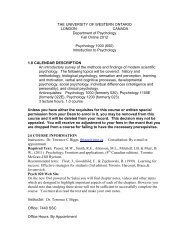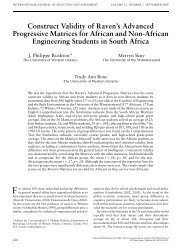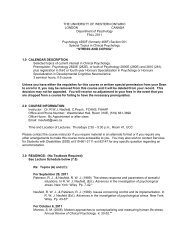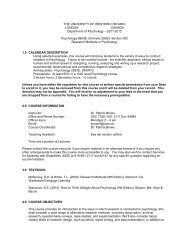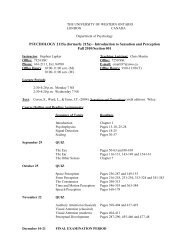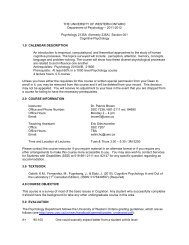Lecture 7 â Anxiety Disorders Anxiety Symptoms of ... - Psychology
Lecture 7 â Anxiety Disorders Anxiety Symptoms of ... - Psychology
Lecture 7 â Anxiety Disorders Anxiety Symptoms of ... - Psychology
You also want an ePaper? Increase the reach of your titles
YUMPU automatically turns print PDFs into web optimized ePapers that Google loves.
Panic & Panic Disorder• Panic attack: a sudden and overwhelmingperiod <strong>of</strong> intense fear or discomfortaccompanied by the flight/fight response• Panic disorder: recurrent unexpected panicattacks, as well as persistent concern aboutthe possible implications and consequences<strong>of</strong> having another attack• Agoraphobia: fear and avoidance <strong>of</strong>situations/ places where a panic attack is feltlikely to occur.Post-Traumatic Stress Disorder• Persistent anxiety following exposure to aseverely traumatizing event (e.g. actual orthreatened death or injury, major accidents,natural disasters, abuse).• Core features:1. Persistent re-experiencing <strong>of</strong> the traumatic event.2. Avoidance <strong>of</strong> stimuli associated with the trauma andnumbing <strong>of</strong> general responsiveness.3. Persistent symptoms <strong>of</strong> over-arousal.• PTSD is correlated with degree <strong>of</strong> exposure.Theories and Causes• Biology and Heritablity:– Inherited biological vulnerabilities towards anxiety.– Involvement <strong>of</strong> various areas <strong>of</strong> the brain in theexperience <strong>of</strong> anxiety and panic.• Temperament and Family Influences:– Is infant temperament related to later anxietyproblems?• Learning theory:– Fear is learned through classical conditioning andmaintained by operant conditioning.



